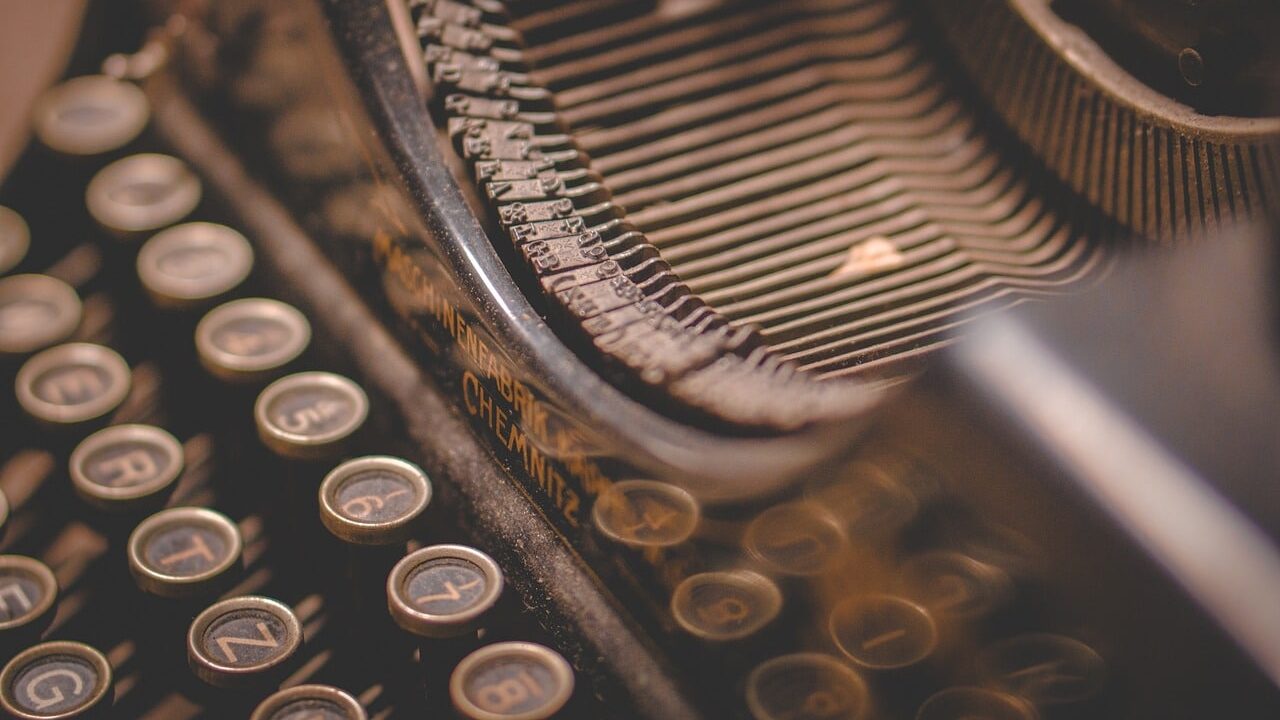I must admit I am a firm believer that there is no need to be an efficient typist to be an accomplished writer. After all, some of the greatest works ever written came before the printing press, yet alone the modern laptop keyboard upon which a compose most of my pieces. But still, learning to type proficiently does help.
The truth is I that I never really learned to type until college at the very earliest. I was fortunate to grow up with a computer in my household, so I knew the basic keys, but despite all the typing lessons and games in the world, I could never really master the process of keyboarding with any degree of confidence.
It took a long time for the pace of my typing to catch up with the ideas flowing through my head. So my high school papers were generally written at a slow and deliberate pace. I occasionally still used that wretched hunt-and-peck method that all new keyboardists resort to in moments of frustration. By the end of high school, I could type, but only slowly.
Almost unbeknownst to me, my skill made a steady improvement during college. One of the eccentricities of my undergraduate institution is that they issued an enterprise-grade tablet PC to every student who enrolled, with the understanding that the computer was yours to keep upon graduating. It was the first laptop I ever owned. Despite the protests of a minority of the faculty who refused to let students take notes on a computer, my fellow freshmen and I began to take our laptops everywhere. In those simpler times, you could leave your computer in the library or the student union and no one would touch it. After all, everyone in your class had the exact same computer and they were technically property of the school.
In class, I would constantly take notes via the computer. Being conscious of how much money my education was costing, I wanted to extract as much value from each lecture as possible. I obsessed over my notes. Anything the professor said, I would try and write down in a mad and somewhat fleeting effort to capture as many ideas as I could before they were seemingly lost forever to the ether. Unsurprisingly, this gave me a lot of material to sort through when it came to final exams, and I remember dozing off on December afternoons in the dorm basement, which was always a balmy temperature and smelled of homemade cookies. But I digress.
Electronic notes certainly have their advantages in that they are portable and searchable, so much so that I still refer back to them a decade later. But the process of taking notes had its own, secondary effect: I began to actually learn to type.
Keyboarding in class forced my brain to triage. I could either focus on the professor, or divide my attention between the keyboard and the computer screen. Over the course of a couple of semesters, I subconsciously trained my brain to do the former. I didn’t have time to think about what keys I was hitting, only that I was accurately recording what the Ph.D. in the front of the room was saying. Eventually, I gave up some of the in-class editing, too, leaving me with typos to fix during my pre-exam reviews but allowing me to pick up more of each lecture in my notes.
Of course, class wasn’t the only time I had to write. Double majoring in history and religion meant I spent more time writing papers than my contemporaries in science, music, and engineering. These were opportunities to type, too. The simple process of writing down a quote from a source became a way to practice typing quickly and accurately.
In graduate school, I further refined my research and writing—and also my keyboarding. I have vivid memories of rushing to finish a book review in the last hour or two before class, hoping that my typing and my analysis would be equally reliable.
By the time I took my first actual writing job, I was writing at about 65 words per minute, and it has improved since, plateauing at about 77-79 words per minute. I do not share this because I am overly proud of the rate at which I can type. Indeed, there are a myriad of competent professionals in fields from accounting to agriscience who can write much faster than I. But I believe learning to type at a later age is testament to the fact that you can pick up skills somewhat later in life and still use them with excellence.
If you met me in middle school you would have called me an unlikely candidate as an effective typist. I did very poorly on those typing tests and games to the point of which it was hurting my grade in computer science class. But regular, disciplined work with a computer—even and especially when typing was not my primary focus—allowed me to develop in ways that turned a weakness into a strength. It’s something I am grateful for, because typing gives me a sort of freedom in writing that I don’t have with just pen and paper. I can capture ideas quickly, savor feelings and memories, and feel joy in the process of writing, living, and doing.
Typing is part and parcel to the modern writing experience, but it doesn’t have to be drudgery. On the contrary, in can be a tool to achieving a sense of flow and embracing the joys of authorship.
